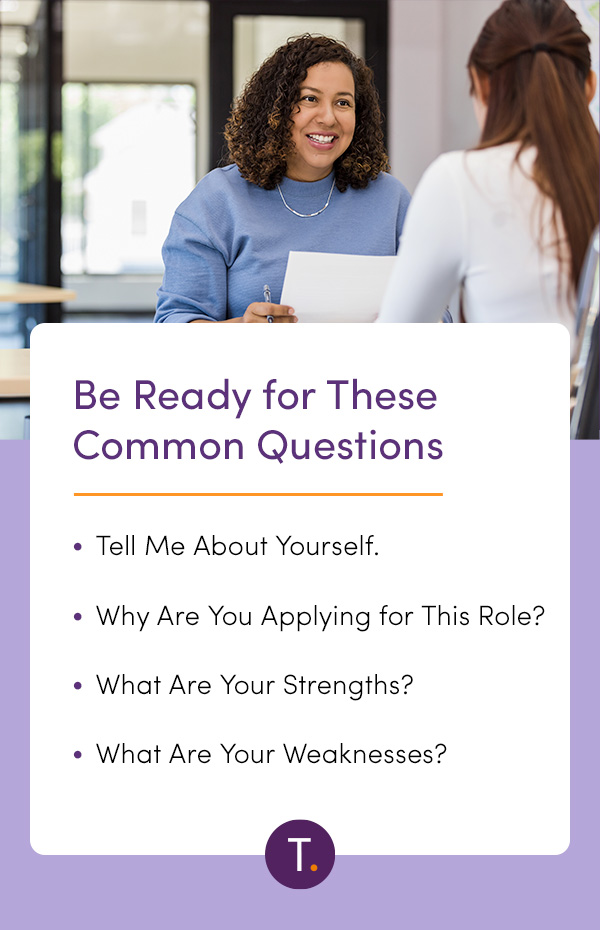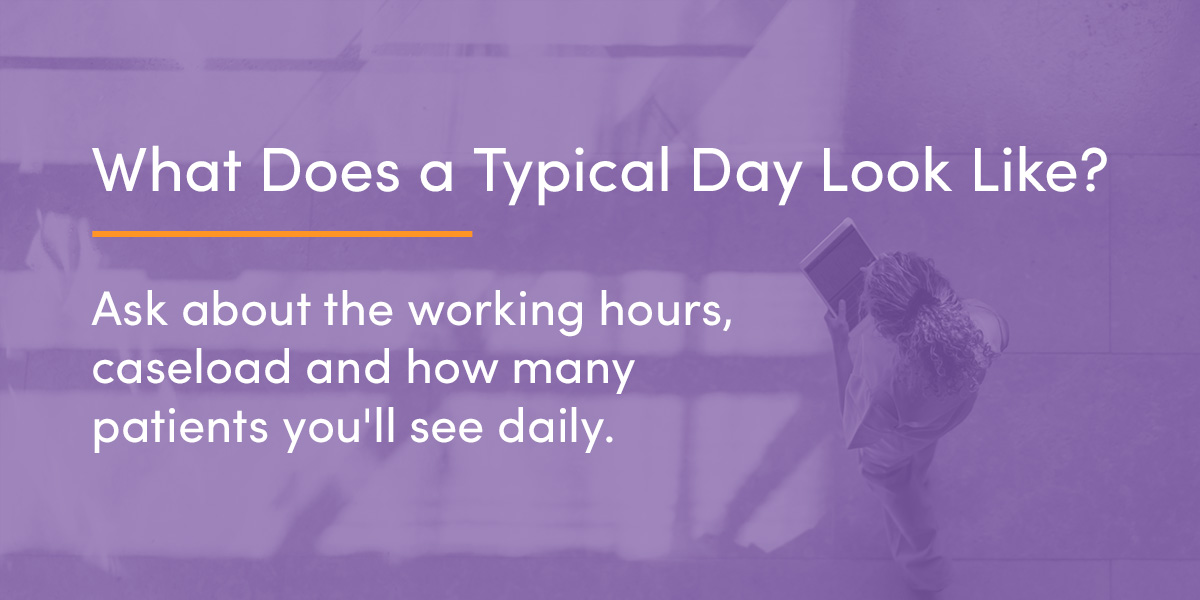An
company | Brands
How to Prepare for a Healthcare Job Interview
Blog/How to Prepare for a Healthcare Job Interview
Preparing for an interview as a travel nurse can set you up for success. The healthcare job market is competitive, which makes it even more important to put your best foot forward. By practicing interviewing techniques for nursing, you can set yourself apart from other candidates. Travel nursing offers you an exciting opportunity to take your skills to new locations and gives you the flexibility to work in different environments.
Getting Reading for Your Interview
Being prepared for your job interview can make all of the difference. These tips can help you put your best foot forward and make a great first impression.
Researching the Hospital
Each healthcare environment has its own set of values and culture. If possible, research the organization and the person who is interviewing you before the interview begins. You can find information on the organization's website and social media profiles and search for reviews on websites like LinkedIn and Glassdoor to learn more about the work environment.
If you can demonstrate that you know about the company's culture and values, the interviewer will be impressed that you are serious about working for them. Understanding the culture and work environment will also give you an idea of what questions they will ask you and how you should frame your answers.
Resume and Portfolio Review
Examine the job description and make sure your work history matches the qualities that they are looking for. Tweaking your resume to highlight where your experience matches best will help you to rise up the ranks and stand out from other candidates. It shows the interviewer and the organization why you are best suited to the role.
For travelers, this process is done for you by your company. Travel nurses and allied specialists typically don't submit a personal resume they way you might for a direct-hire job. Your recruiter will prepare your profile and submit you to the jobs of your choice, automatically taking into consideration which roles are the best match for your skills.
Print or save a PDF of any reference letters from colleagues, mentors and past employers. Accomplished healthcare professionals who can attest to your character and work ethic can be persuasive to interviewers and organizations. If you and another candidate have similar qualifications, knowing the type of person you are can help the organization make their choice. For travelers especially, collecting your own written reference and providing them to your company ahead of time can save your colleagues an extra phone call and makes a great impression.
The interviewer will use your resume to ask questions about your career. If there are any years when you were unemployed, you should be prepared to answer relevant questions. Having gaps is not necessarily a red flag, but employers will want explanations of what you did in those years. Be sure to highlight any bright spots in your career, like a Daisy Award, special procedure training or acting as preceptor.
Be Ready for These Common Healthcare Interview Questions

In any interview, you need to prepare for common questions that will help the interviewer get to know you, why you want to work for the company and your career goals. Practicing the questions beforehand will help you to answer them clearly and confidently during the interview. Ask a friend, family member or colleague to help you practice or you can practice answering the questions in front of the mirror.
Let's look at some common healthcare interview questions you can expect to answer.
Tell Me About Yourself.
While this is more of a prompt than a question, it gives you an opportunity to show the interviewer why you are a good fit for the position. It can be a tricky one to answer, but you should focus on how your strengths and values align with the organization. Focus on your passion for healthcare, why you are passionate about the industry and specific examples of your healthcare skills.
A sample answer may include, “I've always been passionate about helping people, which is why I volunteered at a local community clinic in high school. I then went on to pursue my Diploma in Nursing and working as a nurse in various healthcare organizations. Now, I'm looking to spend some time in this area to be closer to my family.”
Why Are You Applying for This Role?
Answer this question honestly and confidently so the hiring manager knows how passionate you are about your career and the job. Healthcare organizations often look for people who are passionate about what they do and want more than just a job. It's important to highlight the goals and qualities of the organization and how they align with your own.
You can answer this question by saying something like, "Providing patients with high-quality care is something I've always been passionate about, which is why I'm excited about working at this organization. I know that this organization puts patients first and values providing them with high-quality care."
As a traveler, it can also be helpful to call out your reasons for wanting to work in the area or specific facility. Whether you have family nearby, are eager to experience the local food or have heard great things about this hospital's programs, this can help bring some personal connection to why it's important to you to travel to this specific location.
What Are Your Strengths?
Focus on your professional strengths when you answer this question. You should also consider which of your strengths relate to the role you're applying for. The interviewer will want to see how your characteristics contribute to the organization and positions.
Here is an example of how you can answer this question, "One of my greatest strengths is being able to relate to people. I can empathize with patients and gain their trust."
What Are Your Weaknesses?
It's important to be honest when answering this question. You should tell the interviewer about an area that you are struggling with but also give a solution on how you're resolving it. You should be able to display that you're self-aware but also doing what you can to improve on your weaknesses.
An example of an answer is, "I tend to avoid confrontation so that I can keep the peace. I know that it's important to prioritize honesty over telling people what they want to hear, which is why I practice pushing past the discomfort and kindly approaching others with my questions or concerns."
Prepare for Behavioral Questions and Scenarios
Hospitals often ask behavioral questions during interviews to assess your soft skills, adaptability, communication skills, motivation and teamwork. When answering these questions, consider using the STAR interview technique to give a detailed answer. Let's take a closer look at this method:
Situation:
Discuss a relevant scenario, giving enough detail so your potential supervisor can understand the circumstances
Task:
Describe your objective in the situation
Action:
Explain how you went about addressing the situation
Result:
Extrapolate and reflect on the results your actions produced
Let's look at some questions that an interviewer may ask that you can apply the STAR technique to:
How Do You Handle Difficult Patients?

The interviewer will want to assess how you respond to stressful situations. They'll also want to assess how you handle conflict and what your interpersonal skills are like. As a nurse, you need to be able to deal with difficult patients and patient and family concerns about treatment methods.
You could answer this question as follows, "As an experienced nurse, I know that each patient's case is unique. It's important to listen to the concerns and questions of each and provide reassurance and solutions. By showing empathy and compassion, I can diffuse difficult situations with patients."
You might come ready with a specific example explaining — in general terms that protects the patients' privacy — how you responded to a challenging situation and what the outcome was.
How Do You Deal With Conflict With Colleagues?
Similar to the above question, the interviewer will want to assess your interpersonal and conflict-resolution skills. In healthcare environments, you work with a variety of people, so they will also want to evaluate whether you are a team player.
Here is an example of how you can answer this question, “I once worked with a colleague who would undermine my professional opinion. I believe it's important for colleagues to respect each other's professional opinions. When there is conflict, I endeavor to resolve it as soon as possible and find a way forward. I had a private conversation with my colleague to understand why she undermined my opinion and we resolved the conflict.”
How Do You Deliver Bad News to Patients?
When interviewers ask this question, they want to evaluate your ability to deliver news to patients in a professional manner. Carefully consider your answer and determine the best way to relay sensitive information to patients and family members.
Your answer may look something like this, "My first step is to gather all of their relevant patient information. When I meet with patients, I ask them whether they would like to discuss the information with their relatives present or alone. I then proceed to explain the information in a way that the patient will understand. At the end of the explanation, I allow them to ask questions and address any concerns that they may have."
Questions to Ask in a Healthcare Interview
How you present yourself and act in your interview will also impact how your potential employer perceives you.
Before your interview, you should prepare a list of questions to ask the interviewer. Asking questions will help you to learn more about the hospital and working environment. When you ask questions, it also shows that you want to learn more about the organization and are serious about working there.
Let's look at some questions to ask the interviewer:
What Does a Typical Day Look Like?

If the interviewer still needs to address your daily responsibilities, it's important to ask what a typical day will look like. Ask about the working hours, caseload and how many patients you'll see daily. Asking this question will help you understand whether this unit is a good fit for you.
What Will Help a Candidate Succeed in This Role?
When you learn what characteristics will help you succeed in this role, you can follow up their response by demonstrating how your skills match what is needed to succeed. You can do this by giving an example of a particular skill set or characteristic you used in a previous role. Even if you don't possess the skills, you can use this opportunity to demonstrate how you want to grow your skillset and career.
An interviewer wants to know that you are qualified for the job, but they also want to see that you will be a pleasant colleague. With the right icebreaker, you can get the interview off to a great start, so ask about their experience with the company and their favorite part about working there.
Healthcare and Hospital Interview Dress Code
At any interview, you need to present yourself professionally to put your best foot forward. Going to your interview with a simple, neat hairstyle and well-groomed facial hair will show your potential employer that you will take yourself seriously. Wearing neutral grey, black or blue trousers or a skirt with a light button-down shirt will display professionalism.
As a traveler, your interview may not be in person. You may interview over the phone, on a video call or even not interview with the manager at all! However, the rules of presenting yourself professionally still apply. If you're interviewing by phone, be sure you're in a quiet place where you can give the interviewer your full attention; if you're interviewing by video call, ensure you have a strong internet connection and a professional background behind you. Show up on time with a bright smile and a positive attitude.
Create a Day of Interview Checklist
On the day of the interview, you may feel a little nervous or overwhelmed, but a checklist can help you stay on track and reduce your jitters. Below are a few items you might include in your checklist:
Confirm the interview time and location
Plan and set out your outfit the day before
For phone or virtual interviews, ensure you have a quiet space
Compile and print your list of questions to ask the interviewer
Make a copy of your resume, identification, reference letters and credentials
For in-person interviews, map the route to the interview so you're familiar with the directions. You should aim to arrive at least 20 minutes early to avoid rushing and have a buffer against delays such as traffic and finding parking. If you're scheduled for a remote interview, do a test run of your video and audio setup and check your internet connection speeds to avoid technology hiccups during your interview.
Interviews can be stressful, but remember to smile. As much as the interviewer is interviewing you, it's also an opportunity for you to get to know them and the organization. Give yourself a few minutes before the interview to take a few deep breaths to calm your nerves. You can try these deep breathing exercises that help relieve stress.
Apply for Your Next Position With Trustaff
Having an interview can be a stressful experience, but the more you prepare, the more confident you will feel going in. Be proactive by practicing potential questions, preparing questions to ask the interviewer and researching the organization. Taking these steps can help to increase your chances of success. As a travel nurse, a successful interview can open up exciting travel opportunities and be the beginning of a fulfilling career.
At Trustaff, we are passionate about helping travel nurses grow their careers while experiencing an adventure. Start your interview preparations and share this blog with other travel nurses looking for their next role. Browse our open positions online and apply on our website today.



